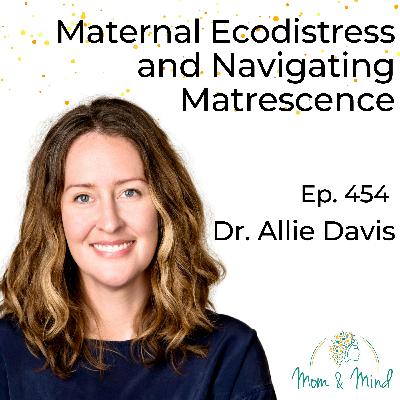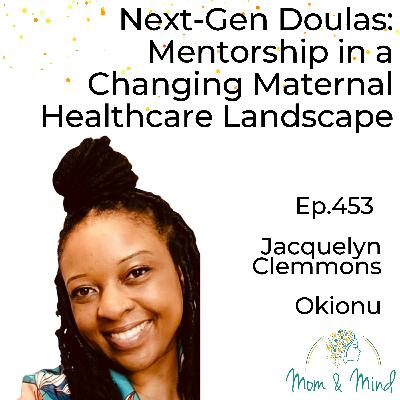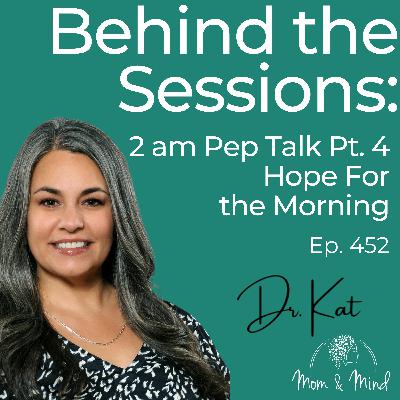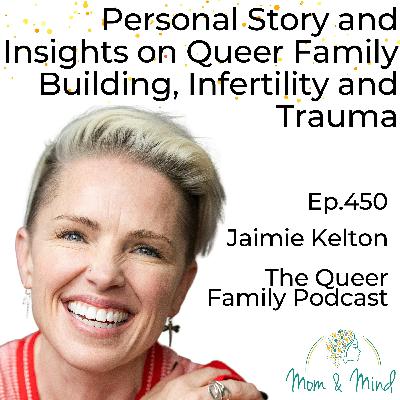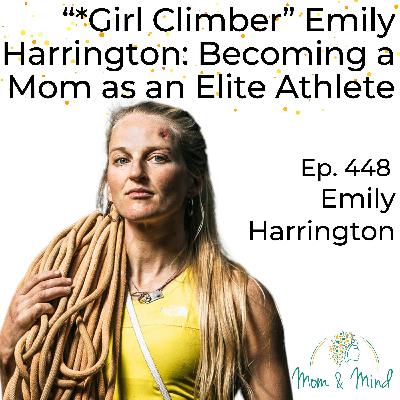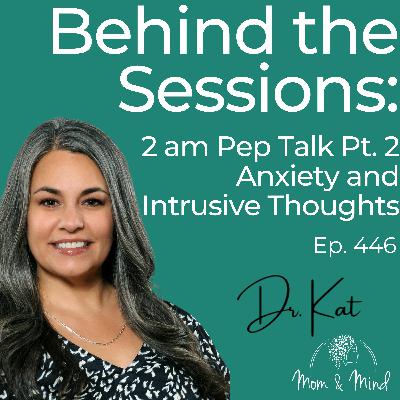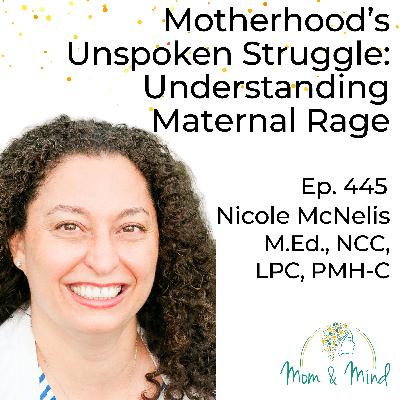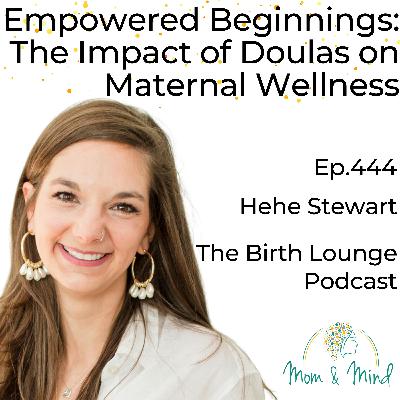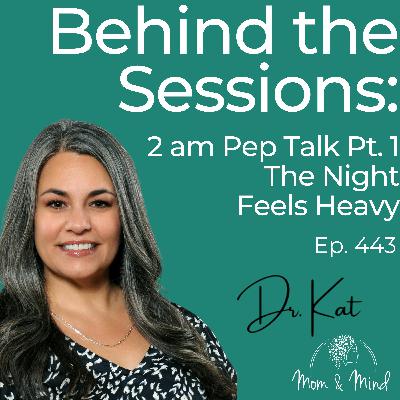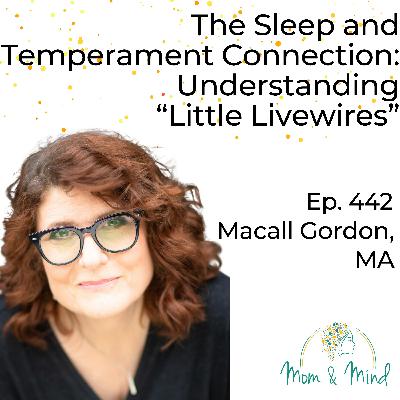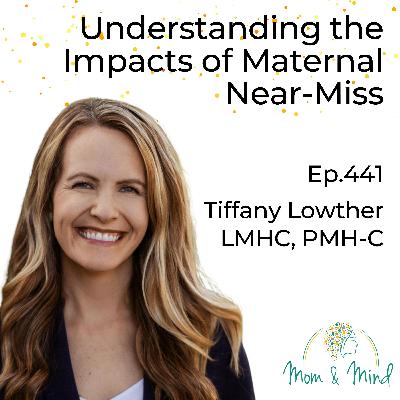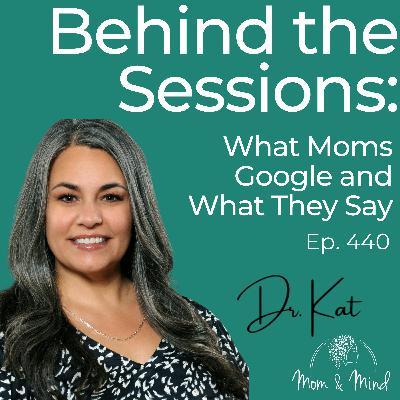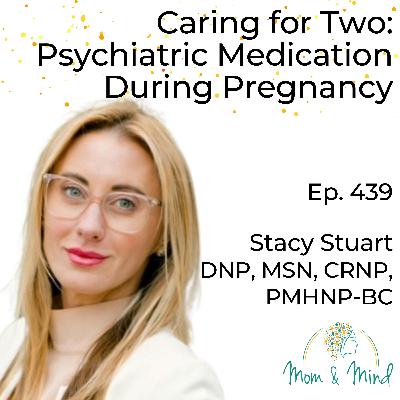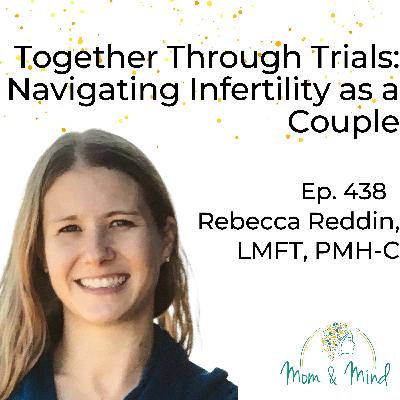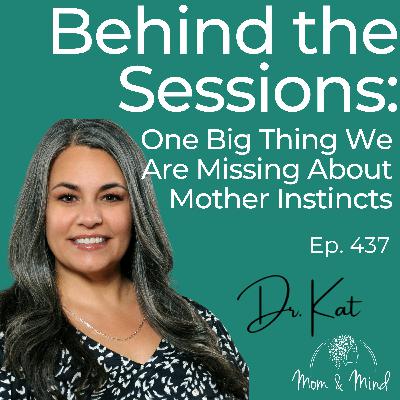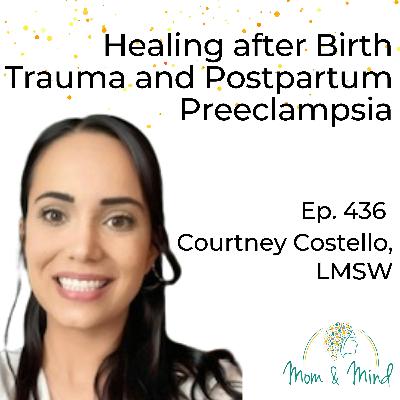454: Maternal Ecodistress and Navigating Matrescence with Dr. Allie Davis
Description
This episode introduces us to maternal ecodistress, explaining what it is and its relationship to matrescence. We also discuss why mothers are vulnerable to mental health challenges in relation to a changing climate and how we can support mothers in this experience. Join us to learn more through this fascinating conversation!
Dr. Allie Davis is a maternal mental health ecotherapist, author of The Mother Tree Method™, and creator of the Maternal Ecopsychology Certification™ for professionals supporting mothers through climate-aware, nature-based mental health care. She is the founder of Root and Ritual Wellness, based in Santa Fe, New Mexico, where she supports mothers in transforming ecodistress into rooted resilience through nature-based practices, storytelling, and care-centered community.
Show Highlights:
Understanding the role of a nature therapist, or ecotherapist, in maternal mental health
The certification available for professionals in maternal ecopsychology
Indicators that someone is being impacted by climate change
Shifts we are seeing in how people want to live in relation to nature
Offering space and support for mothers through their growth
Categories included under the umbrella of ecodistress
Deep connections to nature can impact the way we navigate grief, trauma, and hope.
Ecological questing and its relationship to matrescence, identity, and well-being
Mothers are more susceptible to climate distress
Dr. Allie’s observations about ecodistress in pregnancy and postpartum
Mothers and the eco-guilt burden they bear as caretakers of children and the home
Being a good mother and a “good, green mother”
Dr. Allie’s support for mothers in ecodistress, a trauma symptom that a reattachment to the earth can remedy
Finding support for ecodistress in your community
Focusing on “nearby nature” as a nature-based intervention
Resources:
Connect with Dr. Allie Davis: Website and Instagram
*The insights Dr. Davis shares in this episode are part of her project, Bringing Maternal Ecodistress into the Climate Conversation: A Media Toolkit for Science Communicators, supported by the Schmidt Science Communication Catalyst Grant.
You can learn more and explore the Media Toolkit at www.dralliedavis.com/toolkit.
Call the National Maternal Mental Health Hotline at 1-833-TLC-MAMA or visitcdph.ca.gov.
Please find resources in English and Spanish at Postpartum Support International, or by phone/text at 1-800-944-4773.
There are many free resources, like online support groups, peer mentors, a specialist provider directory, and perinatal mental health training for therapists, physicians, nurses, doulas, and anyone who wants to be more supportive in offering services.
You can also follow PSI on social media: Instagram, Facebook, and most other platforms.
Visit www.postpartum.net/professionals/certificate-trainings/for information on the grief course.
Visit my website, www.wellmindperinatal.com, for more information, resources, and courses you can take today!
If you are a California resident seeking a therapist in perinatal mental health, please email me about openings for private pay clients.
Learn more about your ad choices. Visit podcastchoices.com/adchoices

